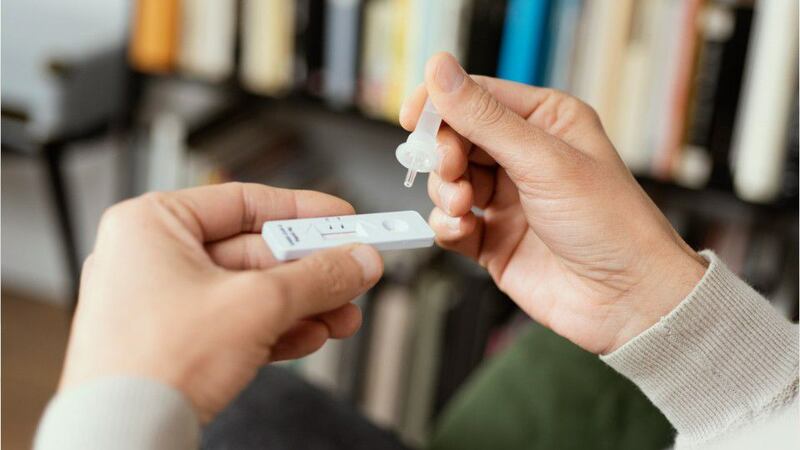People all over the country are trying to get their hands on rapid at-home COVID-19 tests, but now some are questioning if the tests can reliably diagnose the omicron variant.
The Food and Drug Administration said that the rapid tests are more likely to give a false negative result if someone is infected with the omicron variant, CBS News reported.
The FDA is now working with the National Institutes of Health to determine how accurate the test kits — also known as antigen tests — are at detecting the mutated virus.
The FDA did not say which tests are being examined, NBC News reported.
Data shows that the tests can detect the coronavirus but have a reduced sensitivity when it comes to omicron.
Sensitivity refers to how likely a test is to detect a positive result.
Researchers said the concern over the tests shows how COVID-19 has evolved over nearly two years and the challenges that evolution could pose.
“With every new variant, we have to make sure that the tests work, and it looks like the tests work for this. But they’re not picking up infections as early as previous versions,” Gigi Gronvall, a senior researcher at the Johns Hopkins Center for Health Security, told NBC News. “So if you feel any symptoms but test negative, it’s not a get-out-of-jail-free card. You may need to test again and hold off a little bit on assuming that you’re negative.”
Despite the concerns and the review of the tests, the FDA continues to authorize the tests, CBS News reported.
The agency also reminds users that it is important to use them as the instructions advise.
“The FDA continues to authorize the use of these tests as directed in the authorized labeling and individuals should continue to use them in accordance with the instructions included with the tests,” the FDA said in a statement, according to NBC News. “Antigen tests are generally less sensitive and less likely to pick up very early infections compared to molecular tests.”
If a test comes back negative, but there are COVID-19 symptoms or exposure, the test can be followed up by a PCR or other molecular test, CBS News reported.
President Joe Biden announced earlier this month that the government will distribute 500 million free at-home tests starting in January. There will also be additional testing sites added to the 20,000 that are already open across the country, NBC News reported.
More coronavirus pandemic coverage:
>> Coronavirus: How long between exposure to the virus and the start of symptoms?
>> How to not let coronavirus pandemic fatigue set in, battle back if it does
©2021 Cox Media Group






